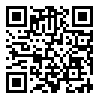پنجشنبه 9 بهمن 1404
| English
دوره 18، شماره 2 - ( 4-1402 )
جلد 18 شماره 2 صفحات 78-71 |
برگشت به فهرست نسخه ها
پگاه نجات*1 

 ، ریحانه میرقاسمی2
، ریحانه میرقاسمی2 
 ، احسان زرین راد2
، احسان زرین راد2 
 ، علی حیرانی طبس2
، علی حیرانی طبس2 



 ، ریحانه میرقاسمی2
، ریحانه میرقاسمی2 
 ، احسان زرین راد2
، احسان زرین راد2 
 ، علی حیرانی طبس2
، علی حیرانی طبس2 

1- دانشگاه شهید بهشتی، تهران، ایران ، p_nejat@sbu.ac.ir
2- دانشگاه شهید بهشتی، تهران، ایران
2- دانشگاه شهید بهشتی، تهران، ایران
چکیده: (2050 مشاهده)
یکی از ابعاد تفاوت بین فرهنگها به نام فرهنگ افتخار در ادبیات شناخته شدهاست که بنا بر آن، شرافت و آبروی خانوادگی، ارزشهای بسیار مهمی محسوب میشوند. با این حال، این باور فرهنگی میتواند زمینهساز پرخاشگری مردان به خصوص در مواجهه با رویدادهای ناموسی باشد. بر این اساس، هدف از پژوهش حاضر شناسایی نقش باور افتخار مردانه در پیشبینی قضاوت در مورد عاملان و قربانیان خشونتهای ناموسی بود. طرح پژوهش حاضر از نوع همبستگی بود. شرکتکنندگان 348 نفر ایرانی (7/68 درصد زن، میانگین سنی 74/27 سال) بودند که به چهار داستانک با محتوای خشونت ناموسی و نیز پرسشنامۀ باور افتخار مردانه پاسخ دادند. بعد از هر داستانک، سوالهایی با موضوع قضاوت اخلاقی در مورد عمل قربانی و عمل عامل، توجیهپذیری عمل عامل و نیز سرزنش قربانی از افراد پرسیده شد. به منظور تحلیل دادهها از روش رگرسیون چندگانه چندمتغیری استفاده شد که در آن، ویژگیهای جمعیتشناختی و باور افتخار مردانه به عنوان متغیرهای پیشبین و قضاوت در مورد عاملان و قربانیان خشونتهای ناموسی به عنوان متغیرهای ملاک لحاظ شدند. باور افتخار مردانه غیراخلاقی دانستن عمل قربانی، سرزنش قربانی و توجیهپذیری عمل عامل را به طور مثبت، اما غیراخلاقی دانستن عمل عامل را به طور منفی پیشبینی نمود. از میان متغیرهای جمعیتشناختی نیز دینداری در جهتی مشابه با باور افتخار مردانه اما مستقل از آن، چهار متغیر ملاک را پیشبینی نمود. یافتههای حاضر مؤید نقش برجستۀ باور افتخار مردانه به عنوان یک ارزش فرهنگی در تعیین قضاوت در مورد خشونتهای ناموسی به عنوان یکی از آسیبهای اجتماعی است.
واژههای کلیدی: خشونت ناموسی، سرزنش قربانی، فرهنگ افتخار، قضاوت اخلاقی
نوع مطالعه: پژوهشي |
موضوع مقاله:
تخصصي
دریافت: 1402/12/10 | ویرایش نهایی: 1404/4/24 | پذیرش: 1403/12/23 | انتشار الکترونیک پیش از انتشار نهایی: 1404/2/26 | انتشار: 1404/4/22
دریافت: 1402/12/10 | ویرایش نهایی: 1404/4/24 | پذیرش: 1403/12/23 | انتشار الکترونیک پیش از انتشار نهایی: 1404/2/26 | انتشار: 1404/4/22
فهرست منابع
1. Baldry, A. C., Pagliaro, S., & Porcaro, C. (2013). The rule of law at time of masculine honor: Afghan police attitudes and intimate partner violence. Group Processes & Intergroup Relations, 16(3), 363-374. [DOI:10.1177/1368430212462492]
2. Benavidez, T. M., Neria, A. L., & Jones, D. N. (2016). The Bond That Breaks: Closeness and Honor Predict Morality-Related Aggression. [DOI:10.1007/s40806-016-0044-x]
3. Evolutionary Psychological Science, 2, 140-148.
4. Brown, R. P. (2016). Honor bound: How a cultural ideal has shaped the American psyche. New York, NY: Oxford University Press.
5. Brown, R. P., Baughman, K., & Carvallo, M. (2018). Culture, masculine honor, and violence toward women. Personality and Social Psychology Bulletin, 44(4), 538-549. [DOI:10.1177/0146167217744195] [PMID]
6. Cohen, D. (1998). Culture, social organization, and patterns of violence. Journal of Personality and Social Psychology, 75, 408-419. [DOI:10.1037/0022-3514.75.2.408] [PMID]
7. Cohen, D., & Nisbett, R. E. (1994). Self-protection and the culture of honor: Explaining southern violence. Personality and Social Psychology Bulletin, 20(5), 551-567. [DOI:10.1177/0146167294205012]
8. Cohen, D., Nisbett, R. E., Bowdle, B. F., & Schwarz, N. (1996). Insult, aggression, and the southern culture of honor: An" experimental ethnography". Journal of Personality and Social Psychology, 70(5), 945-960. [DOI:10.1037/0022-3514.70.5.945] [PMID]
9. Dailey, J. D., & Singh, R. N. (2023, August 27). honor killing. Encyclopedia Britannica.
10. Gul, P., & Schuster, I. (2020). Judgments of marital rape as a function of honor culture, masculine reputation threat, and observer gender: A cross‐cultural comparison between Turkey, Germany, and the UK. Aggressive Behavior, 46(4), 341-353. [DOI:10.1002/ab.21893] [PMID] []
11. Karimi-Malekabadi, F., & Falahatpishe Baboli, M. (2023). Qeirat Values and Victim Blaming in Iran: The Mediating Effect of Culture-Specific Gender Roles. Journal of Interpersonal Violence, 38(3-4), 2485-2509. [DOI:10.1177/08862605221101184] [PMID]
12. Miles, J., & Shevlin, M. (2008). Applying Regression and Correlation: A Guide for Students and Researchers. A. Kiamanesh & M. Kabiri, Trans.). Jahad Daneshgahi (Allame Tabatabaei University). (Original work published 2001).
13. O'Dea, C. J., Chalman, S. T., Bueno, A. M. C., & Saucier, D. A. (2018). Conditional aggression: Perceptions of male violence in
14. response to threat and provocation. Personality and Individual Differences, 131, 132-141.
15. Öztemür, G., & Toplu-Demirtaş, E. (2023). Are the Paths to Victim-Blaming Paved with Hostile Sexism, Honor System Justification, and Fragile Masculinity? Evidence from Men in Turkey. Sexuality & Culture, 28, 168-186. [DOI:10.1007/s12119-023-10109-8]
16. Saucier, D. A., Stanford, A. J., Miller, S. S., Martens, A. L., Miller, A. K., Jones, T. L., & Burns, M. D. (2016). Masculine honor beliefs: Measurement and correlates. Personality and Individual Differences, 94, 7-15. [DOI:10.1016/j.paid.2015.12.049]
17. Saucier, D. A., Till, D. F., Miller, S. S., O'Dea, C. J., & Andres, E. (2015). Slurs against masculinity: Masculine honor beliefs and men's reactions to slurs. Language Sciences, 52, 108-120. [DOI:10.1016/j.langsci.2014.09.006]
18. Taylor, J. (2023, May 10). Combatting Gender-Based Violence - Pathfinder International. Pathfinder International.
19. Tiliopoulos, N., Bikker, A. P., Coxon, A. P., & Hawkin, P. K. (2007). The means and ends of religiosity: A fresh look at Gordon Allport's religious orientation dimensions. Personality and Individual differences, 42(8), 1609-1620. [DOI:10.1016/j.paid.2006.10.034]
20. Uskul, A. K., Cross, S. E., Günsoy, C., Gerçek‐Swing, B., Alözkan, C., & Ataca, B. (2015). A price to pay: Turkish and Northern American retaliation for threats to personal and family honor. Aggressive behavior, 41(6), [DOI:10.1002/ab.21598] [PMID]
21. Vandello, J. A., & Cohen, D. (2003). Cultural themes associated with violence against women: A cross-cultural analysis. Unpublished manuscript, Princeton University.
ارسال پیام به نویسنده مسئول
| بازنشر اطلاعات | |
 |
این مقاله تحت شرایط Creative Commons Attribution-NonCommercial 4.0 International License قابل بازنشر است. |

